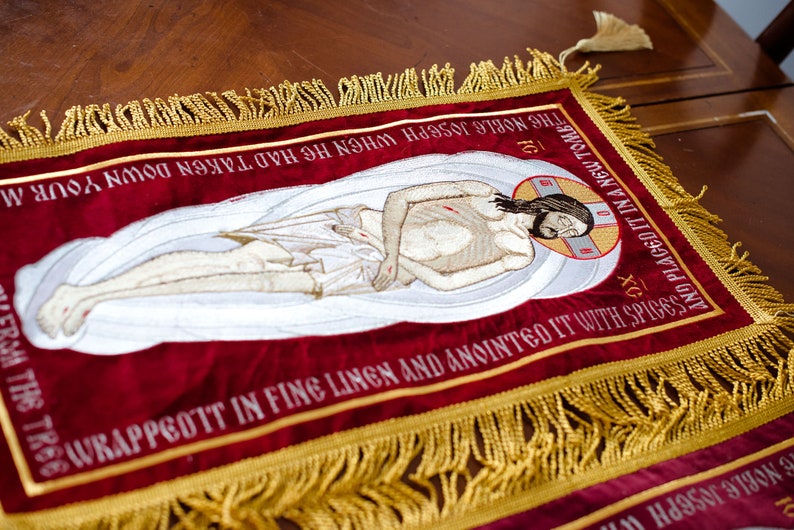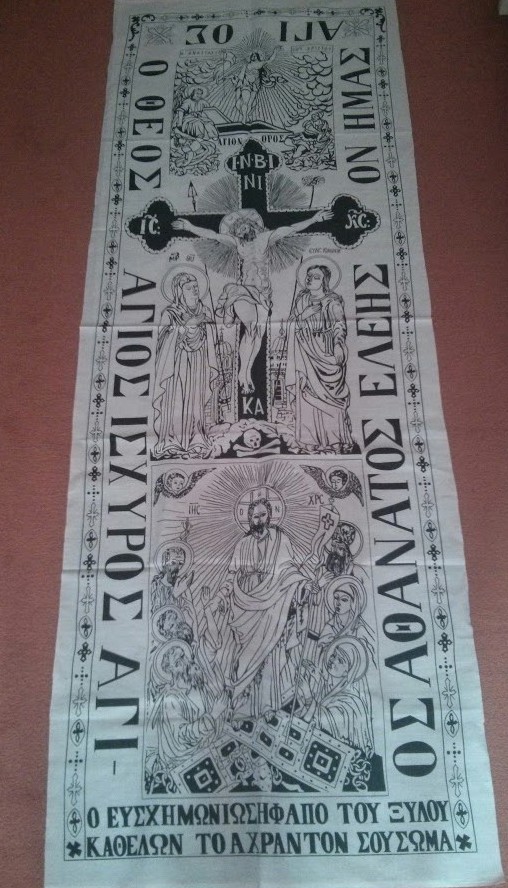

In this case it is mandatory that the prayerful atmosphere and respect for the church must be maintained. In some parishes the church is now used instead of the funeral parlor. Visiting and sharing refreshments, if desired, must take place in a room other than where the body is viewed. Such reading is also a more personal and prayerful experience than listening to recorded music. When family members and friends take turns reading the Psalms a party atmosphere is avoided. It is an ancient tradition that, in addition to the Trisagion Service, the Book of Psalms would be read continuously over the body of the deceased during the viewing. The time spent in the presence of the departed’s remains should be spent in an attitude of reverence for the mystery of death and respect for the family of the departed. The viewing is first of all an occasion for prayer, not for socializing. We should resist attempts of unbelieving relatives or friends to avoid confronting death and the Gospel’s faith in the resurrection as proclaimed in the funeral service.

As Christians we must proclaim the reality of death and the fact that our true and eternal life is in Christ. Christians, who believe in eternal life, while lamenting bodily death, do not see death as our final end.

This is another way in which people who see bodily death as the end of existence seek to avoid facing that end. Sometimes, out of dislike for mourning, people try to eliminate anything other than the briefest service in the funeral parlor, leaving the disposition of the body to the funeral director to arrange out of sight. Over the past century, as more and more people died in hospitals, and funeral parlors came to be the ordinary place for the preparation and viewing of the remains of their dead, the journey has generally gone from the funeral parlor to the church to the cemetery. In the past, when most people died at home, the funeral began there with the Trisagion Service, moved on to the church for the funeral service proper, and then processed to the grave for the interment. The prayers and hymns which accompany the departed on this journey speak to us of our creation in God’s image, the fall, and our consequent need for repentance in order to achieve the end which God has in mind for us: eternal life with Him. This represents the journey which the believer’s spirit takes to God. In the Eastern Churches the funeral service is basically a procession in which we accompany with prayer the body of the departed from the place of death to the grave. If family members are told that their loved one is near death, they should inform the priest at once so that he can offer the Prayers for the Departure of the Soul from the Body, sanctifying the last moments of the sick person’s earthly life.

It is not an inconvenience for him to visit the sick. The priest is called to care for the sick and dying it is one of his tasks as priestly mediator and is motivated by divine charity. Family members should not hide their loved one’s sickness from the priest and deprive their loved one of the Church’s prayers out of a distorted sense of family pride. Whenever a person is sick at home or in the hospital the parish priest should be notified to pray over the sick person, confer the Mystery of Holy Unction, and bring Holy Communion if possible. Our Church has a number of prayers and services interceding for the needs of the sick. Funerals and Memorials A pastoral letter by Melkite Bp.


 0 kommentar(er)
0 kommentar(er)
